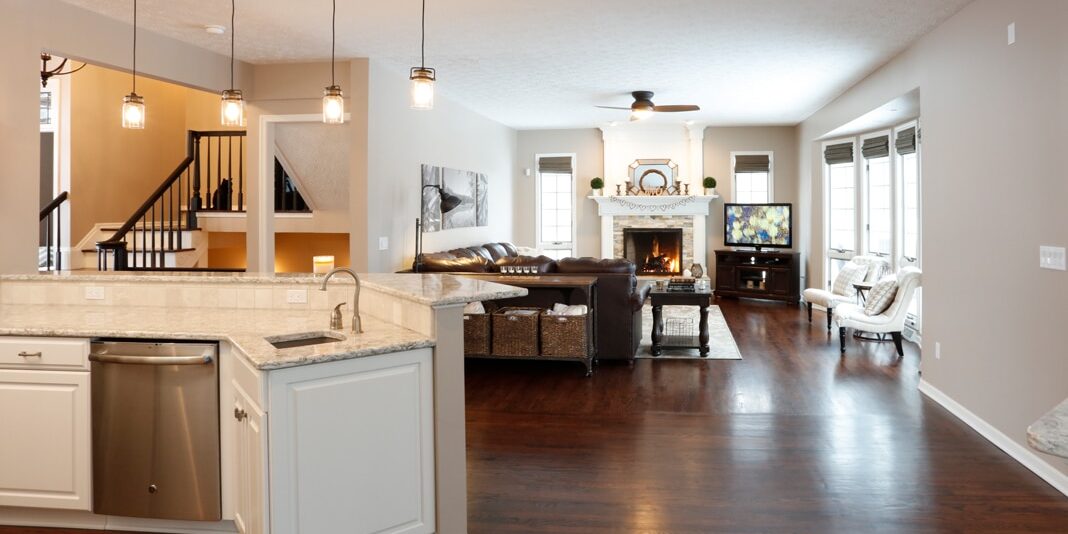Hardwood floors are a classic choice for homeowners. Gracing homes of all styles for centuries, their timeless beauty and inherent warmth add a touch of luxury to any space. But beyond aesthetics, hardwood floors are prized for their durability. With proper care, these surfaces can become heirlooms passed down through generations.
In this blog post, we’ll explore how to maximize the lifespan of your hardwood floors, ensuring they continue to grace your home for years to come.
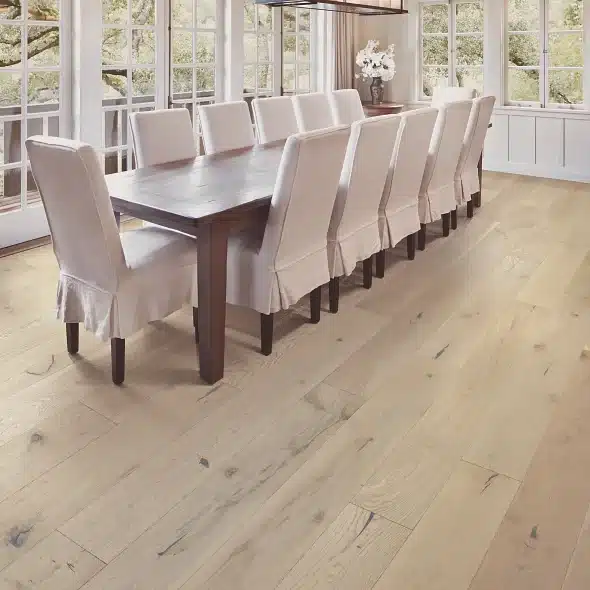
Understanding Hardwood Floor Lifespan
There are two main hardwood floors to consider: solid and engineered.
- Solid hardwood floors are crafted from a single, thick plank of solid wood. They offer unparalleled resilience and, if properly cared for, the potential to last well over a century.
- Engineered hardwood floors have layered construction featuring a plywood core or other stable material topped with a natural wood veneer. This design offers excellent moisture resistance, making them ideal for areas prone to humidity fluctuations. While less durable than solid hardwood (lasting typically 20-30 years), engineered floors provide a budget-friendly alternative with a genuine hardwood aesthetic.
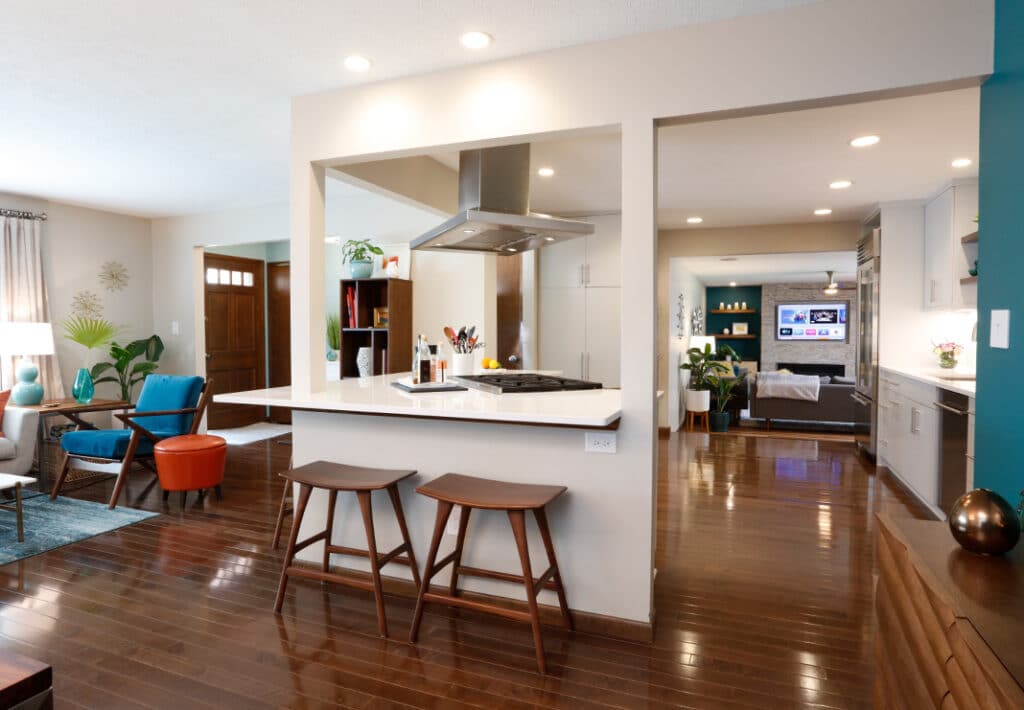
Factors Influencing Hardwood Floor Longevity
Several factors influence the lifespan of your hardwood floors:
- Wood Species. The inherent hardness of the wood plays a crucial role. Species like oak, maple and hickory boast exceptional resistance to everyday wear and tear, while softer woods like pine and cherry require more delicate care.
- Installation Expertise. Flawless hardwood installation is essential for ensuring a level surface free of gaps for a long-lasting installation. Uneven floors can lead to premature wear and tear. Here at the Dover Floor & Tile Center, our team of professional installers has the expertise and experience to create a seamless foundation for your hardwood floors.
- Maintenance and Care. Regular cleaning, using the proper cleaning products and avoiding water damage are all crucial for maintaining the beauty and longevity of your hardwood floors.
- Environmental Influences. Humidity and temperature fluctuations can threaten hardwood’s stability. As humidity levels rise and fall, hardwood floors can expand and contract, potentially causing gaps or warping. Maintaining consistent humidity levels in your home is essential for safeguarding your investment.
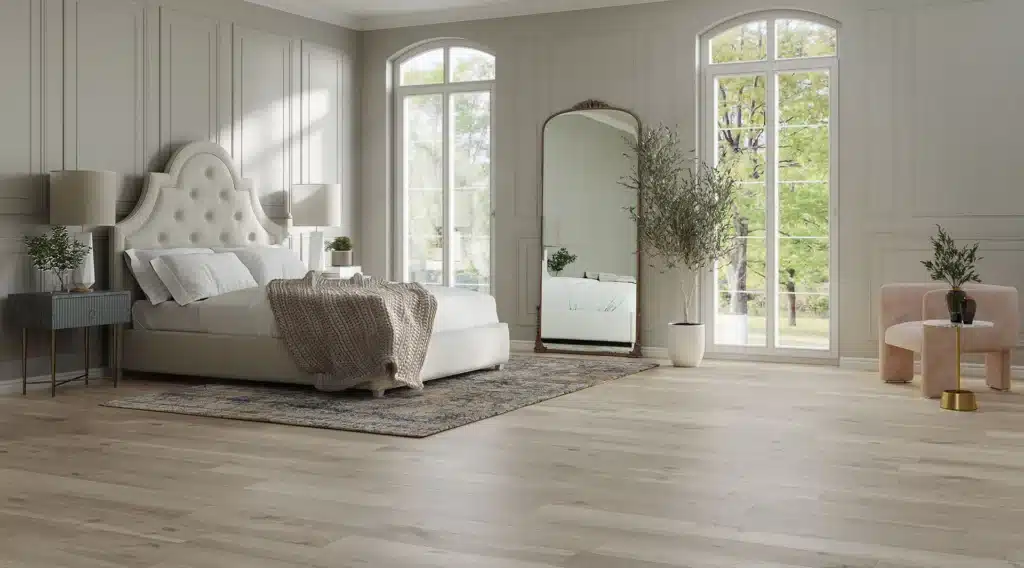
Extending the Life of Your Hardwood Floors
Here are some key strategies to keep your hardwood floors looking their best for years to come:
- Cleaning Regularly. Dirt and debris act like little sandpaper particles, dulling the finish and scratching the surface of your floors. Sweeping or vacuuming your hardwood floors regularly is the first line of defense. Here are some tips for vacuuming hardwood floors:
- Use the hard floor setting on your vacuum cleaner. This setting uses a softer brush that won’t scratch the wood.
- Attach a felt or microfiber attachment to the vacuum cleaner foot. This will further protect your floors from scratches.
- Empty the vacuum cleaner bag or canister regularly to maintain suction power. Poor suction can leave dirt and debris behind on your floors.
- Taming the Mop. While hardwood floors are known for their durability, they aren’t fans of excessive moisture. Moping too frequently or using too much water can damage the wood, causing warping or rotting. Here’s the proper mopping technique:
- Use a microfiber mop that’s slightly damp, not soaking wet.
- Choose a cleaning solution specifically designed for hardwood floors. Avoid harsh chemicals, soap-based cleaners or oil-based products, as they can damage the finish. To be safe, check the manufacturer’s recommendations for your specific hardwood floor type.
- Wring out the mop thoroughly so that it’s barely damp to the touch.
- Never pour cleaning solution directly onto your hardwood floors.
- Spot Clean Spills. Spills happen, but it’s important to address them quickly to prevent them from soaking into the wood and causing stains or warping. Blot up spills with a clean, absorbent cloth or paper towel. Don’t scrub; this can spread the spill and damage the finish.
- Adding a Rug Barrier. Area rugs placed in high-traffic areas can help protect your hardwood floors from scratches, dents and wear and tear. Choose rugs with a breathable backing to prevent moisture from getting trapped underneath.
- Mind Your Furniture. Furniture can leave dents and scratches on your hardwood floors. Here are a few ways to prevent this:
- Apply furniture protectors, such as felt pads, to the feet of your furniture.
- Use area rugs under heavy furniture pieces.
- Lift, rather than drag, furniture when you need to move it.
- Maintaining Proper Humidity. Consistent humidity levels are crucial to preventing hardwood floors from warping or cracking. Ideally, you want to maintain a humidity level between 30% and 50% in your home. A hygrometer can help you monitor humidity levels. If your home’s humidity levels are too low, you can use a humidifier to add moisture to the air.
- Addressing Scratches and Dents. Minor scratches and dents are a natural part of everyday wear and tear. For shallow scratches, you can use a hardwood floor scratch removal kit. These kits typically include a rubbing compound and a stain to buff out minor scratches. For deeper scratches or dents, you may need to consult with a professional floor refinisher.
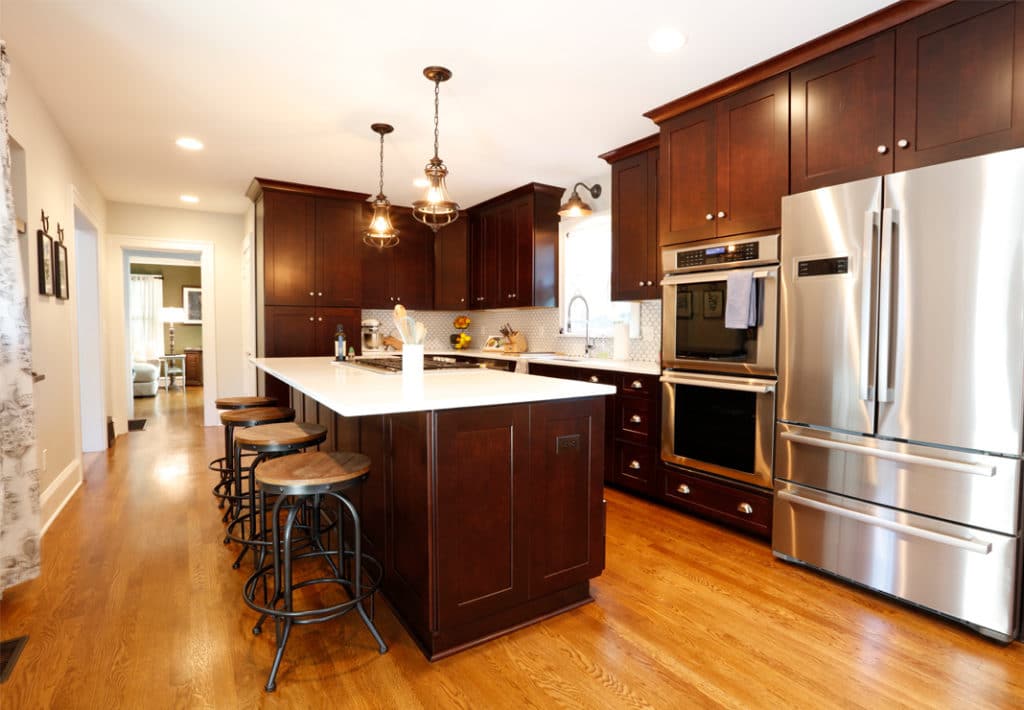
Final Thoughts About Hardwood Floor Longevity
Hardwood floors are classic and timeless. They add beauty, value and warmth to any home. With proper care and maintenance, hardwood floors can last for generations. By following the tips in this blog post, you can learn how to clean, protect, and maintain your hardwood floors so that they continue to grace your home for years.
If you’re considering installing hardwood floors in your home or need help selecting other floor and tile products for your home, stop in the Dover Floor & Tile Center in North Olmsted. Browse our extensive selection of hardwood floor products and meet with one of our designers to select the best product for your home style and the way you live.
The best is yet to come,
Beth Orr
